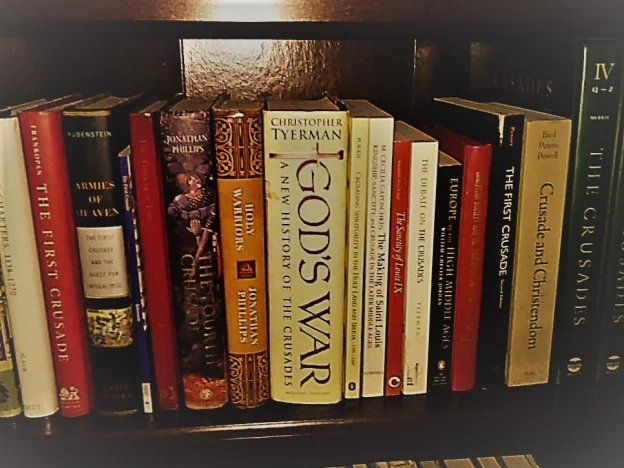Above Image: Cover of issue 4 of the Islamic State’s glossy English language propaganda magazine. Many of its issues contain references to the crusades or explicit crusading rhetoric.
——————-
In 2015 I had the pleasure of co-editing (w/Alfred J. Andrea) the book Seven Myths of the Crusades (Hackett, 2015). It includes seven essays by prominent crusade historians dealing with various popular modern “myths” related to the medieval crusading movement. While recently preparing for an upcoming talk at Georgia Southern University, titled “The Modern Politics of Medieval Crusading,” I was carefully rereading the various chapters of Seven Myths, and thought it worthwhile to briefly highlight one of them here.
One of the historians who agreed to contribute to our project was the distinguished American medievalist Edward Peters, the former Henry Charles Lea Professor of History at the University of Pennsylvania (now Professor Emeritus). Over the course of his career, his work on medieval inquisitions has been highly influential and his translations of crusade texts have been used in college or university classrooms for nearly two decades. Consequently, when Ed agreed to contribute a chapter to Seven Myths, co-authored with his talented former doctoral student Mona Hammad (Associate Professor of Medieval History at the University of Jordan), Al and I were elated. The combination of the two authors was ideal in light of the topic they considered in their essay, titled “Islam and the Crusades: A Nine Hundred-Year-Long Grievance?”
The subject of their essay is a potentially controversial one, particularly as it argues that much of the Islamic world’s modern memory of the medieval crusades, a memory which frames the crusades as a largely unprovoked Christian attack on the Muslim world, serving as a constant source of division and mistrust today, was only developed in the 19th and 20th centuries during an age of western imperialism that influenced its construction. Moreover, Ed and Mona’s essay emphasizes that it was essentially the modern imperialist west that taught the modern Muslim world to hate the crusades, as there had been relatively little concern about them expressed in texts by Muslim authors in the centuries prior.
Having a well known and highly respected medievalist like Ed, as well as Mona, who is fluent in Arabic and lives and works in Jordan, seemed like (and proved to be) an ideal pairing for the chapter. Anyone seriously interested in the topic should, of course, consult their work, but here I want to highlight only a few key parts of their otherwise much lengthier and more engaging essay. Continue reading →



